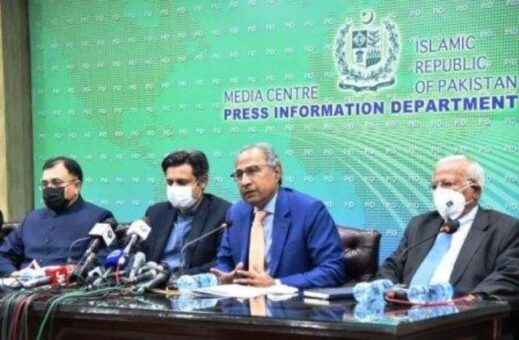ISLAMABAD: The government is going to withdraw various exemptions allowed under Income Tax Ordinance, 2001.
The exemption may be withdrawn through Income Tax (Second Amendment) Ordinance, 2021, the sources said on March 21, 2021.
Following are the highlights of the proposed law:
It is proposed to omit power of Federal Board of Revenue (FBR) to declare any sector or industry as industrial under taking under Section 2 Clause (29C) of Income Tax Ordinance. 2001.
Under Section 23A of the Income Tax Ordinance, 2001 it is proposed to omit first year allowance equal to 90 percent of the cost of plant and machinery to mobile phone manufacturers and other industrial undertakings located in underdeveloped areas.
Under Section 61 of the Income Tax Ordinance, 2001 it is proposed to enhance the scope of tax credit for contribution to non-profit and other organizations as direct deduction of such expense is being proposed to be done away with by omitting clause 61 of part I of the second schedule.
Under Section 64C of the Income Tax Ordinance, 2001, it is proposed to omit tax credit available to persons employing fresh graduates. It was available maximum up to 5 percent of the tax liability.
Under Section 65C of Income Tax Ordinance, 2001 it is proposed to omit tax credit to companies equal to 20 percent of tax payable for first two years and 10 percent for next two years of enlistment at stock exchange.
Section 65D of Income Tax Ordinance, 2001, it is proposed to omit tax credit available to newly established industrial undertakings.
Under Section 65F of Income Tax Ordinance, 2001, it is proposed that the exemptions available to persons engaged in coal mining in Sindh, IT exports and startups to be replaced with tax credit.
Under section 65G of Income Tax Ordinance, 2001, the exemptions available to greenfield industrial undertakings and industries engaged in manufacture of plant, machinery, equipment and items with dedicated use (no multiple uses) for generation of renewable energy have been proposed to be replaced with tax credit on the basis of investment made in plant machinery, building, computer, hardware and software.
Under Section 100C of Income Tax Ordinance, 2001 law related to tax credit available to charitable organizations has been re-drafted to make it simpler & easier besides streamlining the regime with other provisions. No substantial change.
Under Section 152 of Income Tax Ordinance, 2001, technical correction in sub-section (1E) to synchronize with other sub-sections


